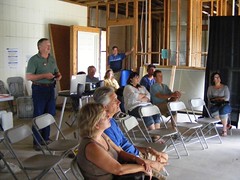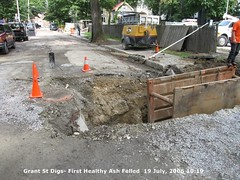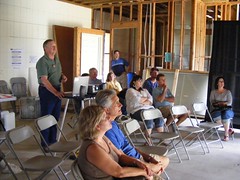It’s a Real Estate Boom for First Time Home Buyers
The subprime mortgage real estate fiasco has created a glut of residential real estate in the real estate market. Foreclosures are on the rise and it doesn’t look like the end is in sight for at least another year. Thousands of home owners are losing their homes because adjustable mortgage rates have adjusted upward and caused increases of monthly mortgage payments so high that the affected home owners just can’t make the payments. It is inevitable, under these circumstances that many homes go into foreclosure and banks have to take them back.
While it is unfortunate that many home owners are losing their homes, the opposite and upside effect is that the real estate market is now a boom for the first time home buyer.
Mortgage interest rates are still low and banks and real estate lending institutions have 30-40 year fixed loans for home buyers. With home values in many areas around the country, such as California, plummeting anywhere from 30-50 percent of what they were a year ago, the market is wide open for buyers who have never owed a home and would like to do so now.
Lending institutions and sellers are very motivated now and are readily lending their ears to home buyers saying “lets make a deal” and deal they will. Here are some of the innovative and sensible ways home buyers can now acquire a home of their own when they are armed with some real estate homebuyer education.
1. Use government grants and loans for down payment assistance.
The federal government in 2003 established the American Dream Down Payment Act. This federal law has allocated 0 Million a year since 2003 to assist with arranging down payments for first time home buyers. This is a good indication of just how serious the government is about helping Americans make the American dream of home ownership come true.
Fannie Mae, one of the many federally supported programs for home buyers has programs such as the MyCommunity Fixed Rate Mortgage. This unique program is ideally suited for the first time home buyer. It provides for low down payment, high loan to value with broad flexibility, including nontraditional credit considerations allowing for the buyer to qualify for the loan. It also has special financial options to serve public servant professions such as teachers, police officers, firefighters and health care workers, and people with disabilities.100% financing is available with 30-40 year fixed rates. Check out the details at http://www.efannie.com.
These funds, in addition to other government funding sources, are made available through federal, state and local government agencies that provide down payment assistance to their citizens on a case by case basis.
Every major city and county has one of these programs. One need only exercise a little initiative and these funds can be acquired. Contact your local housing authority, city managers office or county administration department to find out about them and how to apply.
2. Use non-profit agency down payment assistance
Another little known, but long existing opportunity for first time home buyers to acquire help with down payment assistance is the numerous numbers of non-profit agencies around the country that provide free down payment assistance to home buyers. The Community Reinvestment Act of 1977, enacted by Congress in 1977 and revised in 1995, requires banks located within identified communities to make loans and reinvest the depositors’ deposits within that community.
For decades now and continuing into the future banks have been making huge amounts of funds available to invest in targeted communities. However, the availability of the funds was not publicized in a significant way and many people did not and still do not know about these funds. Many non-profit agencies became aware that they could help in the community revitalization effort by creating a means whereby the banks could channel the funds through various home assistance programs that non-profits created. The non-profits that specialize in this type of program have grown over the years. Some are very large and are nation wide such as the Nehemiah Corporation – www.nehemiahcorp.org.
They get funding from the banks via the Community Reinvestment Act and other funding sources and then provide for down payment assistance and other housing assistance to persons desiring to own a home.
One of the high points of these programs is that the funding is often times not limited to first time home buyers and certainly is not limited to only low income home buyers. This creates yet another source of down payment assistance for the prospective home buyer. Given the numerous avenues of funding to assist in buying a home and the present market swing in favor of home buyers, buyers are now firmly in the driver’s seat.
First Time Home Buyer Programs
Roy Landers is a California attorney and real estate broker with over twenty years of real investing experience. He is also a licensed real estate broker in the country of Mexico. He teaches real estate investment strategies through seminars and some conducts free home buyer education courses for first time home buyers. For information visit the website at http://www.housingamericans.com or contact roylanders@housingamericans.com








